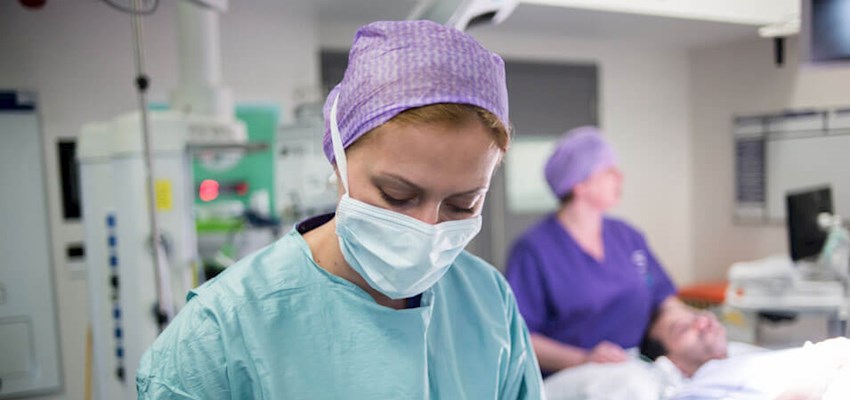Kidney transplant
Treatment for people with kidney failure
End-stage chronic kidney disease (CKD) or kidney failure is the most common reason for needing a kidney transplant
About your kidneys
Dialysis can partially replicate kidney function but it can be inconvenient and time consuming — making a kidney transplant the ideal treatment for kidney failure.
Need to know
-
What happens during a kidney transplant? icon plus
A kidney transplant usually takes around three hours and has three stages.
1. A cut is made in your lower abdomen through which the donated kidney is put in place. Your own kidneys will be left where they are unless they're causing pain or infection.
2. Nearby blood vessels are attached to those of the donated kidney.
3. The ureter (the tube that carries urine from the kidney to the bladder) of the donated kidney is connected to your bladder.A stent (a small plastic tube) may be inserted into the ureter to aid urine flow and is usually removed 4‒6 weeks later. The cut in your abdomen will be closed with surgical staples, stitches or surgical glue.
-
How to prepare icon plus
You'll be assessed to determine if you're suitable for kidney transplantation. Following a successful assessment you will be admitted into hospital.
At the hospital, you'll be assessed to ensure you have no new medical conditions.
Tests will also be done to ensure the donor kidney is suitable for you. Once this is confirmed, you'll be given general anaesthetic and taken to the operating theatre. -
Afterwards icon plus
You will feel some pain upon waking ‒ painkillers can be provided.
You'll also be put on immunosuppression therapy immediately to prevent rejection of the new kidney.
Most transplanted kidneys work immediately but some may take several days to work properly. Dialysis may be needed during this time.
Most people leave hospital in a week but you'll need to attend frequent check-ups to assess your kidney function and to ensure your medications are working.
For the first few weeks, you'll have two to three appointments a week, subsiding to once every few months after a year.
You should be able to resume work and normal activities within a few months.
Our consultants




Our locations
From complex surgery to straightforward procedures, we provide exceptional care across our network of hospitals, outpatient centres and specialist clinics.
-
HCA UK at University College Hospital
5th floor, UCH Macmillan Cancer Centre
Grafton Way Building, 1 Grafton Way
London WC1E 6AG
Book an appointment
Our team can help with any enquiries or you can make an appointment with one of our experienced consultants.
Call us today
020 7079 4344